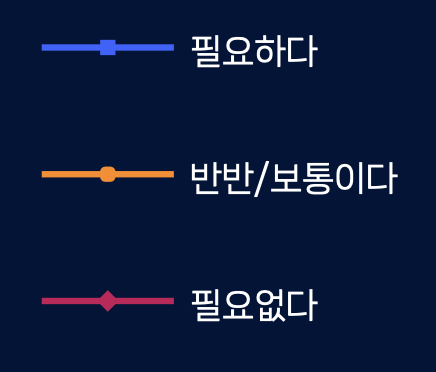[91st Korean Academic Conference] 2022 Unification Consciousness Survey – Peace at a Crossroads, Reexamining Unification
Notice
Conferences
2022.11.07
[Event Video]
[Event Details]
□ Seoul National University’s Institute for Peace and Unification Studies (Director Byung-Yeon Kim) held an academic conference on September 27, 2022 at 1:20 p.m. under the topic of Peace at the Crossroads, Reexamining Unification and presented the results of the 2022 Unification Consciousness Survey.
- For the past 16 years since 2007, this survey has been investigating changes in the South Korean public’s views and perceptions of unification, North Korea, North Korea policy, neighboring countries, and North Korean defectors, and its findings have been well received.
- The 2022 survey was commissioned by Gallup Korea and conducted through individual interviews with 1,200 men and women aged 19 or older in 17 cities and provinces nationwide from July 1 to July 25, with a sampling error of ±2.8% and a confidence level of 95%.
□ This conference was organized in the following order.
- In the 1st part, major survey results were presented and discussed. In the 2nd part, based on the survey data, the impact of △ The Influence of the Perception of North Korea Policy on the Korean Presidential Election and △ an In-Depth Analysis were presented under the theme of differences in the sense of unity between generations.
- In the 3rd part, a comprehensive discussion was held with △ Bum-Soo Kim (Professor of Seoul National University’s Department of Liberal Studies, Deputy Director of the Institute for Peace and Unification Studies), △ Hyun-Kyung Kim (MBC Unification Broadcasting Institute Director, adjunct professor from the Graduate School of North Korea), and △ Dr. Jong-Cheol Park (visiting professor from Daejeon University).
□ The main findings of the 2022 Unification Consciousness Survey are as follows.
- Since the survey began, the response that near-term unification is possible is the lowest ever, and the response that unification is impossible is the highest ever.
The proportion of respondents who said unification was possible within “five years” was 1.3% while 5.9% said it was possible within 10 years, both were the lowest recorded results since the survey began in 2007. - The proportion of respondents who said “unification is impossible” rose 31.6% to the highest level since the survey began in 2007. Especially those within the ages of 20s and 30s, 40.9% and 35.3% of the respondents said “impossible.”
- Since the survey began in 2007, the highest figure reached 92.5% of the respondents said North Korea would never give up its nuclear weapons.
- In the past four years, public opinion in favor of Korea’s independent nuclear armament has been increasing, rising to 55.5% in 2022, up 10%p from last year (44.9%).
- For the purpose of North Korea policy, the preference for unification decreased by 2.2%p, while public opinion for peaceful coexistence and peace settlement rose by 7%p.
Conservatives’ satisfaction with North Korea policy soared 38.3%p to 20.0% → 58.3%, while progressives’ satisfaction with North Korea policy decreased by 10.5%p to 53.0% → 42.5%, clearly effecting the outcome of the recent presidential election. - Conservatives’ demand for unification rose to 40.6% → 48.3% while progressives’ demand for unification decreased from 51.8% → 47.9%.
In the Yeongnam region, prioritizing cooperation with North Korea rose 7.9%p to 34.6% → 42.5%. - The percentage of disapproval towards North Korean defectors recorded the highest ever at 32.3%, 9%p higher than the percentage of those who felt friendly towards the North Korean defectors (23.1%).
- In terms of affinity for neighboring countries, intimacy with the U.S. rose to 80.6%, the highest ever recorded. Meanwhile, China and North Korea are still perceived as threatening countries surveyed at 44.0% and 36.8%, respectively, and down 2.0%p and 1.1%p, respectively, but still high.
- The perception of a Russian threat has risen from less than 1% to 8.5%, reflecting changes in Russian perception following the Ukrainian war.
- Although polarizing differences in generation, region, and ideology were profound in shaping the overall sense of unification, progress towards a common middle ground have clearly been shown compared to last year in the face of rising national security particularly towards the North Korean nuclear threat.
[Event Poster]
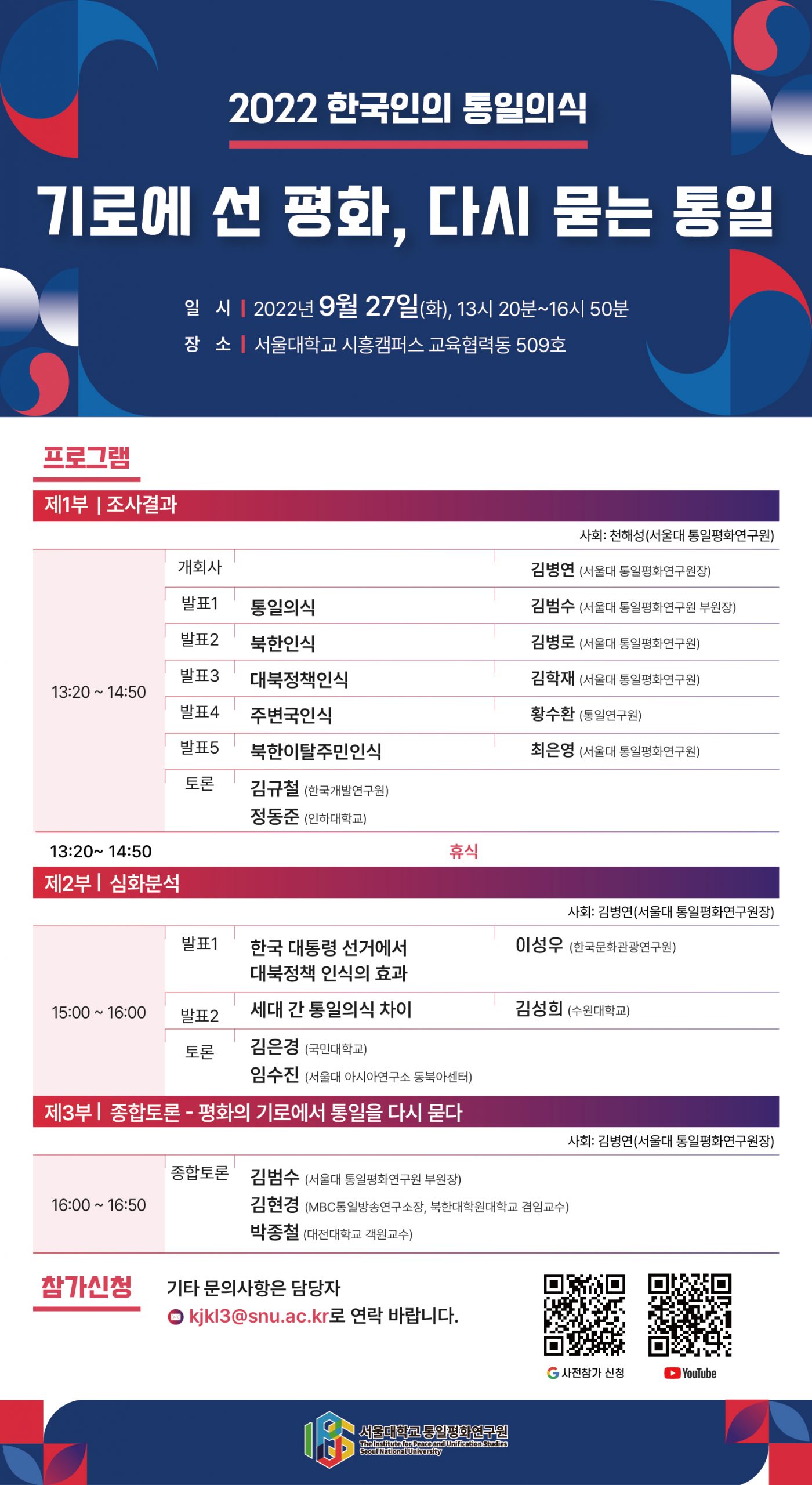
[Event Pictures]
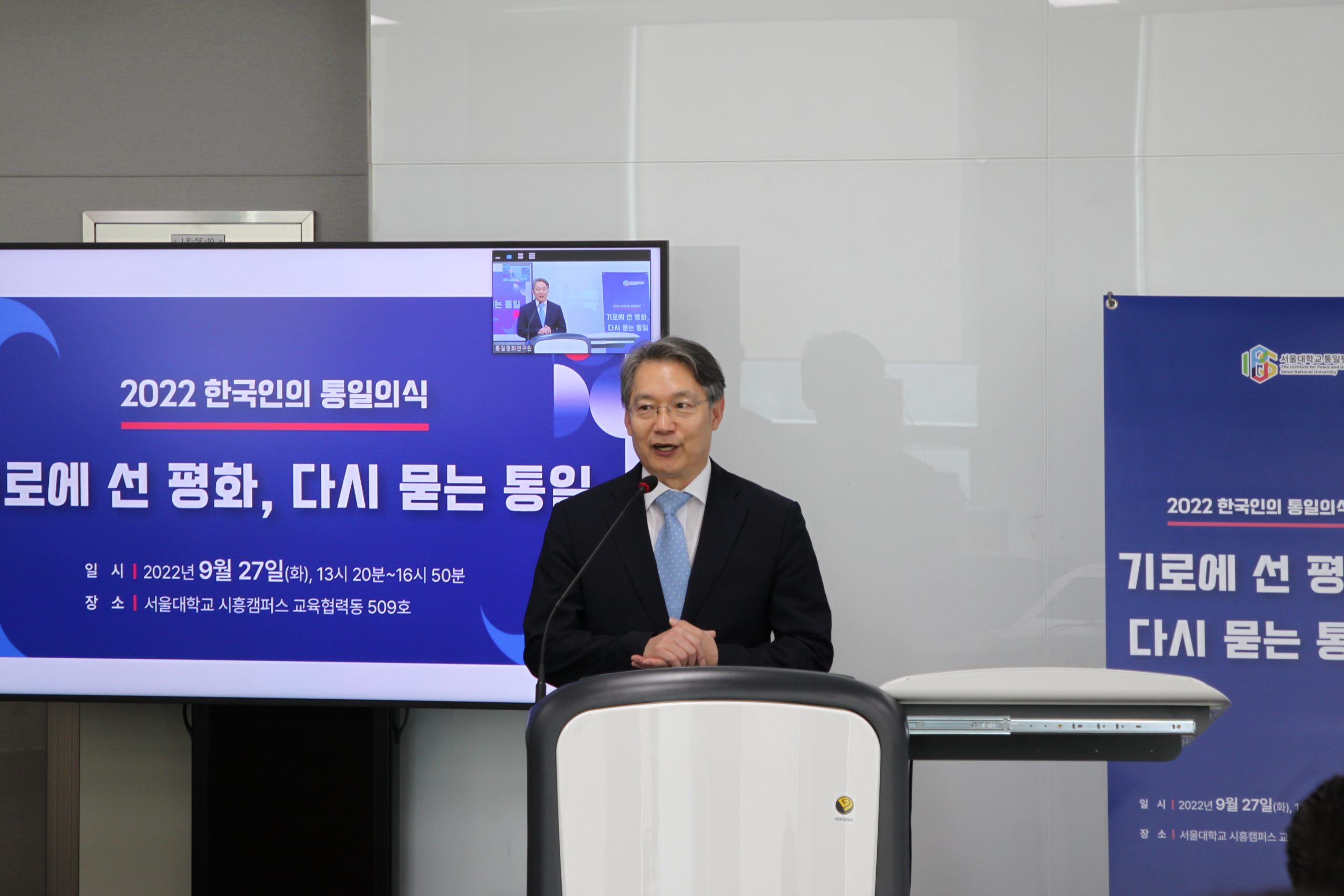
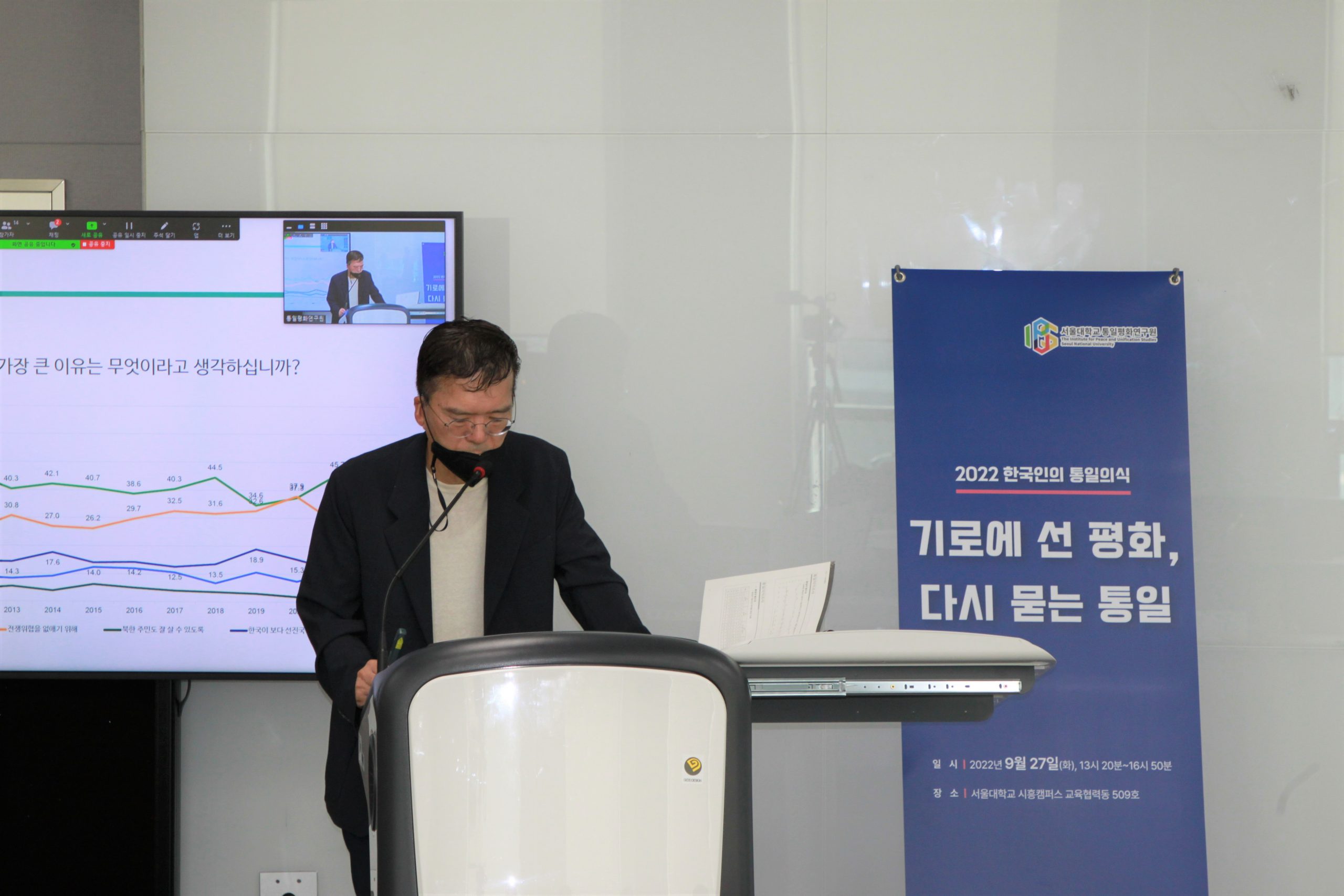
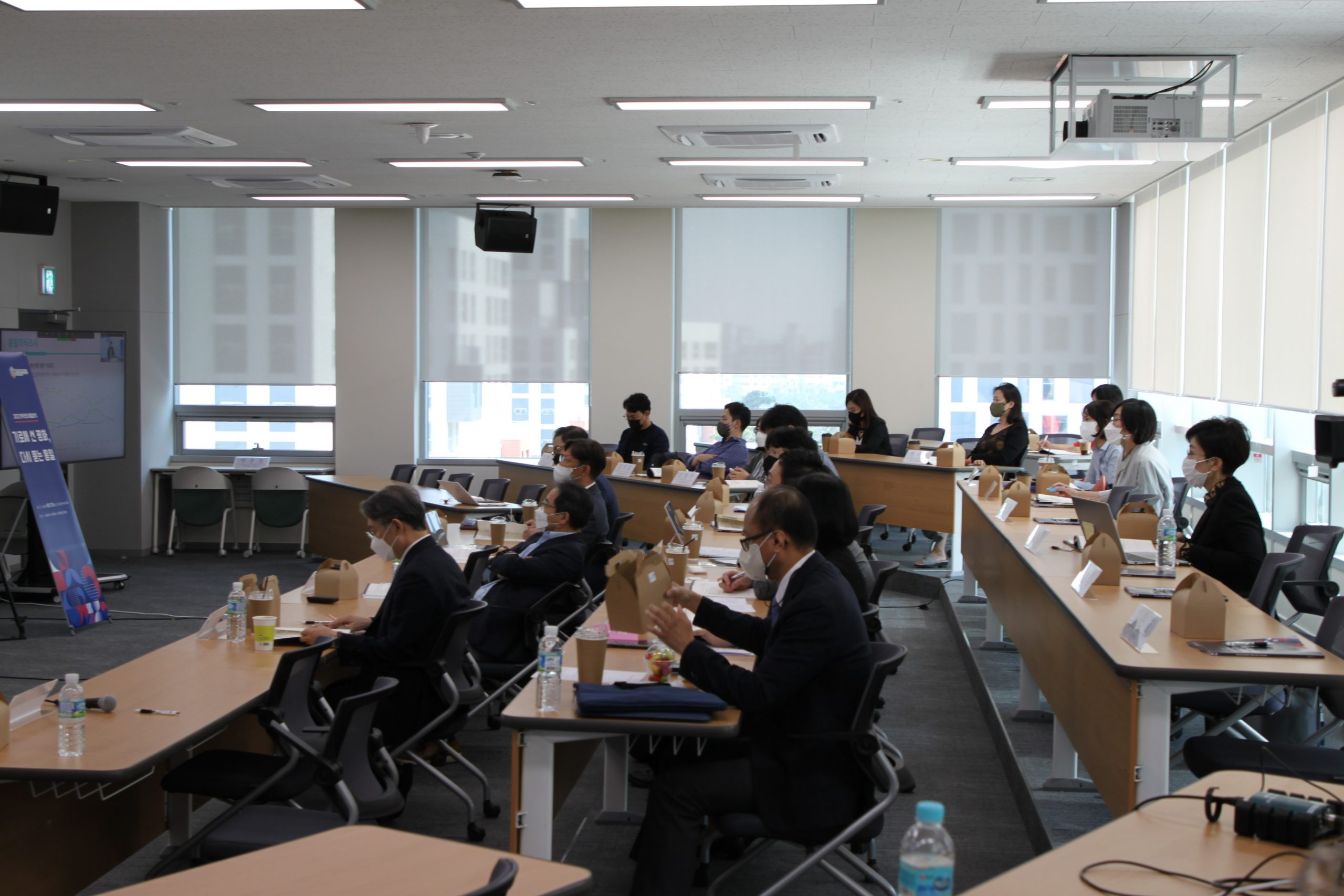
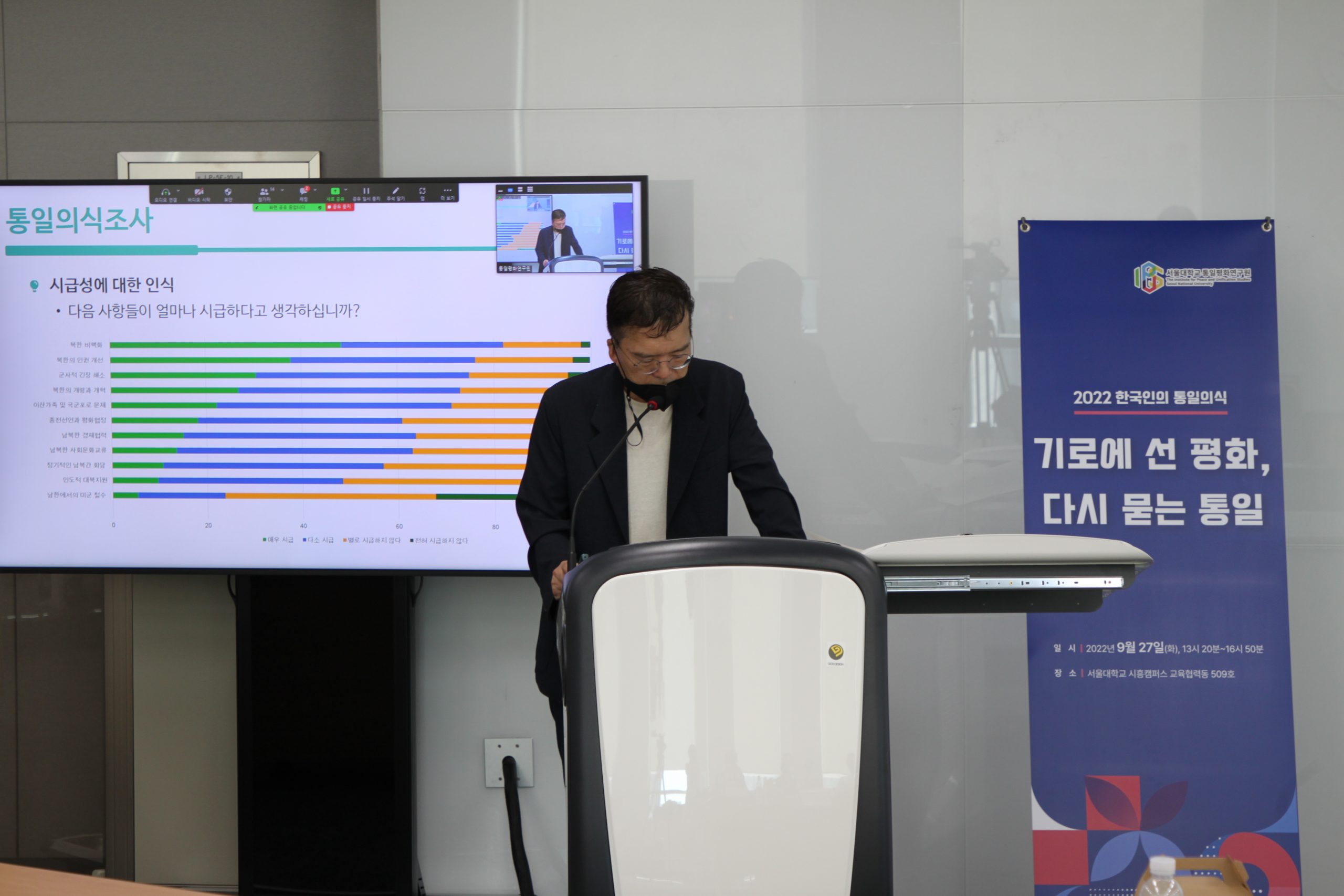



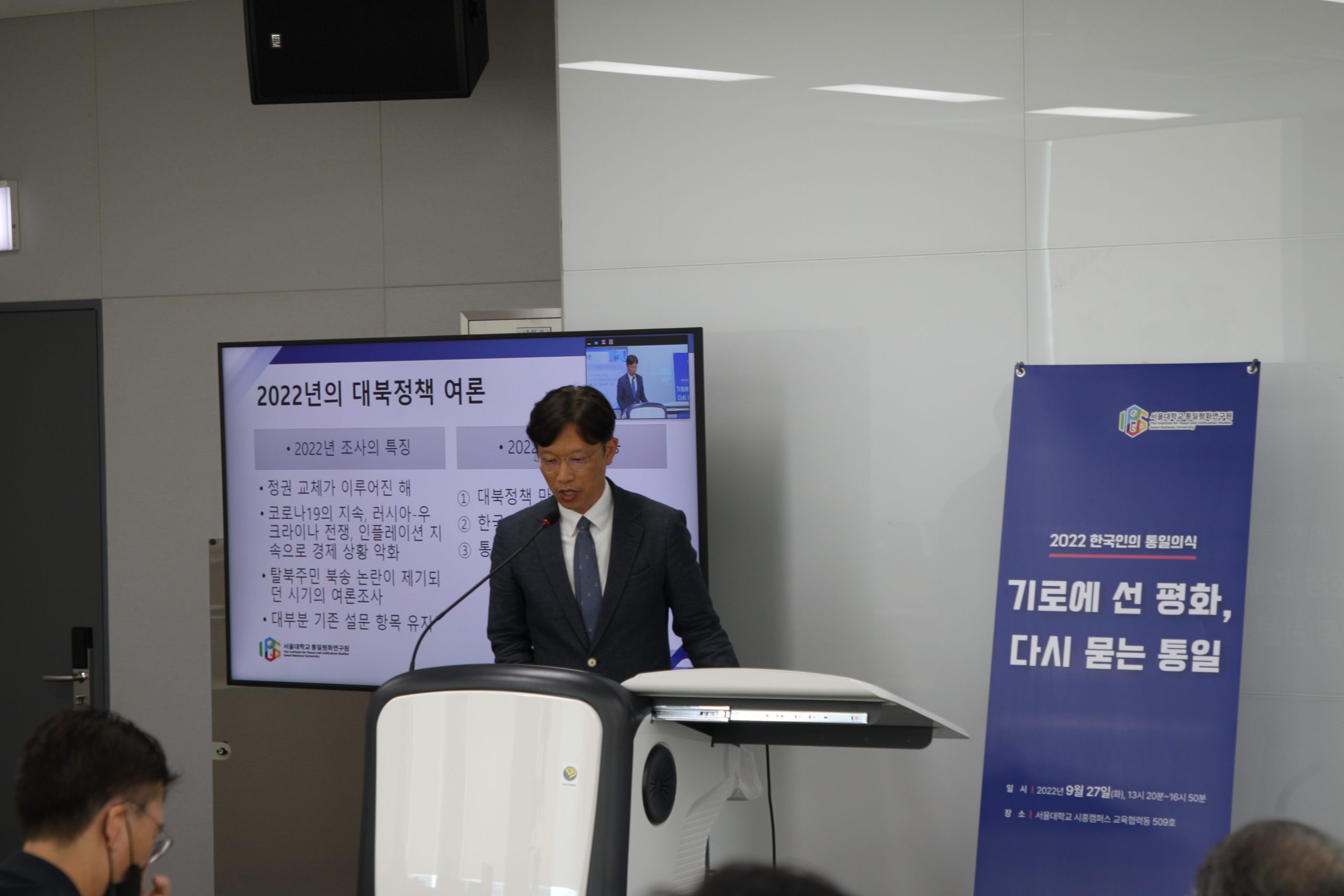

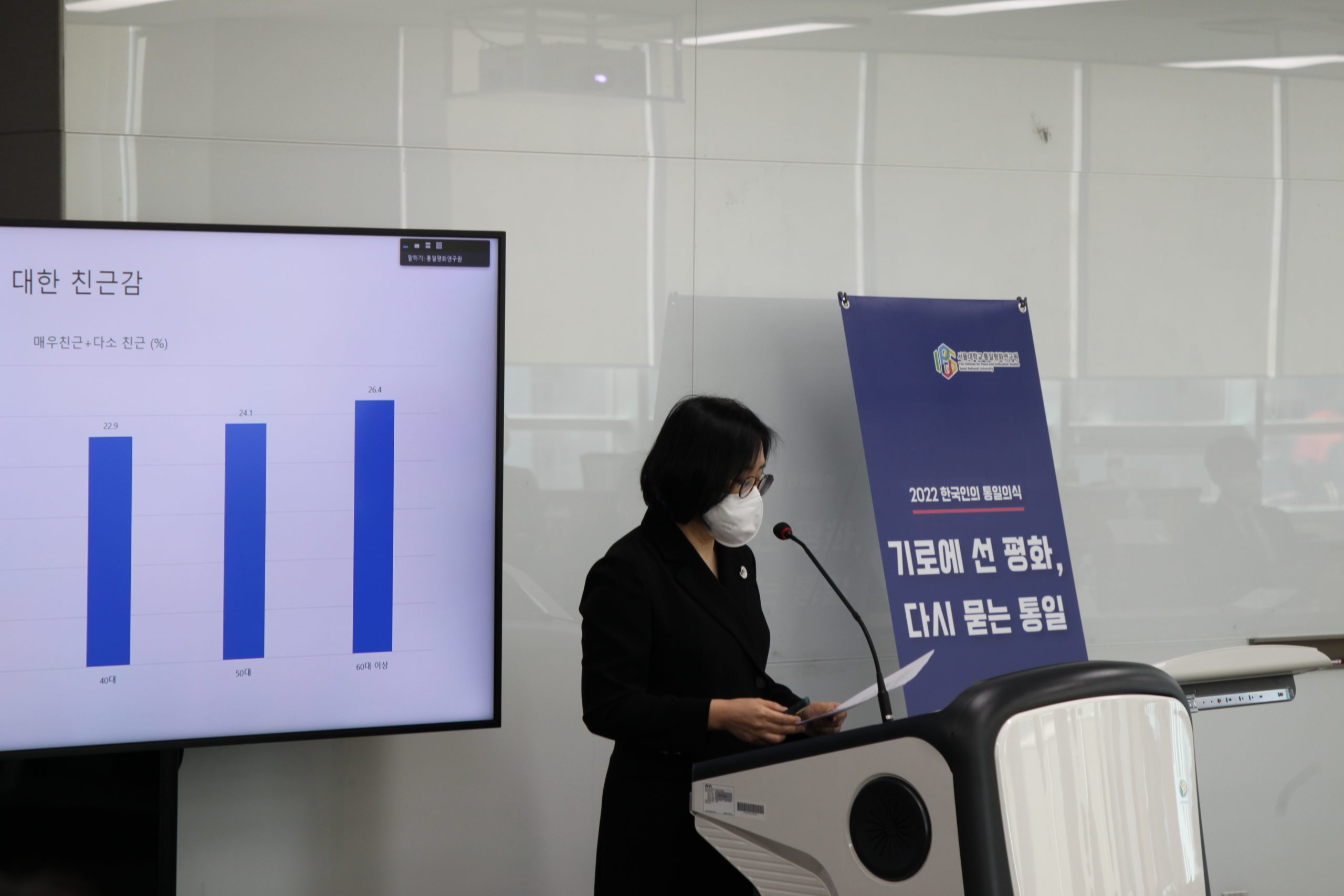
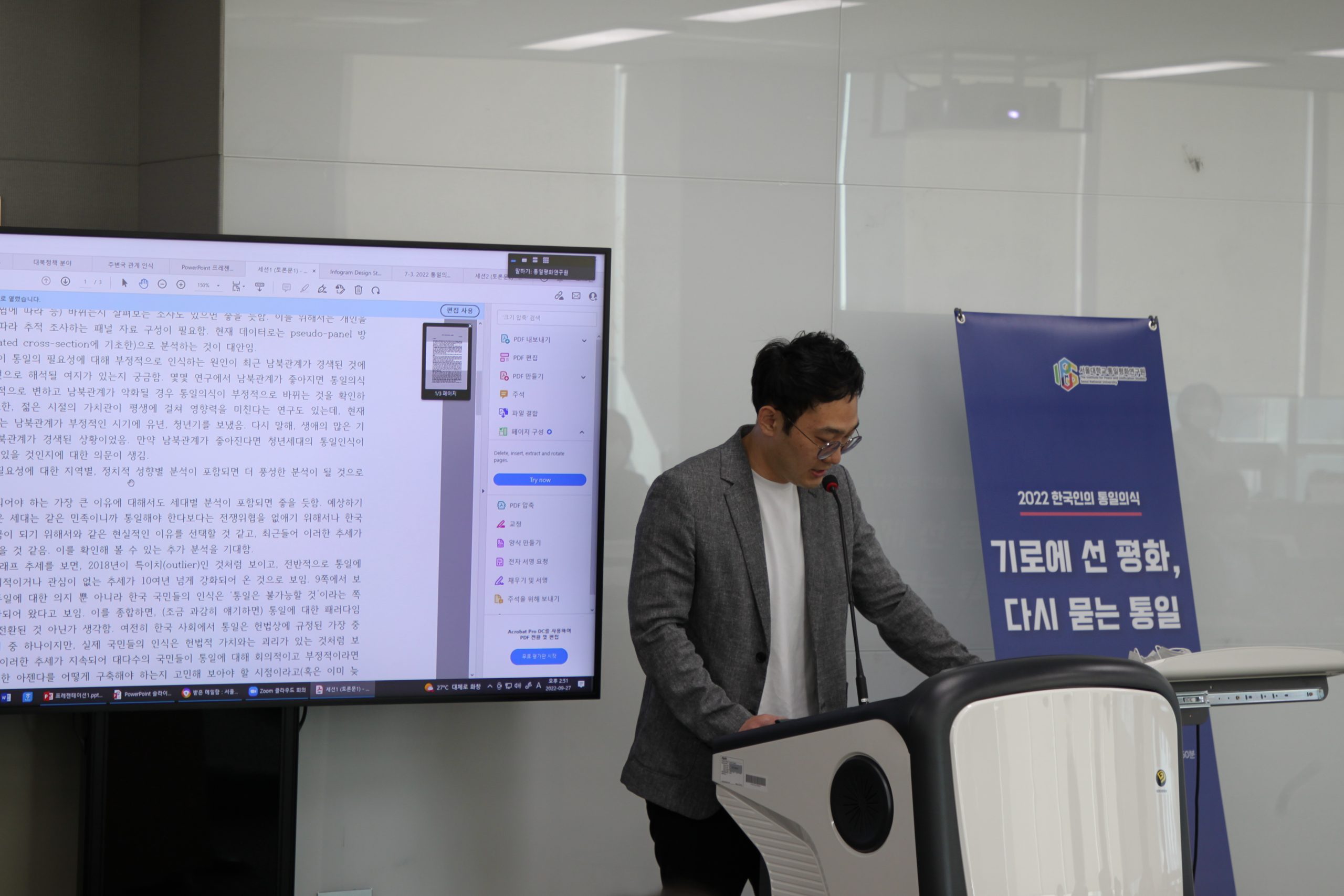

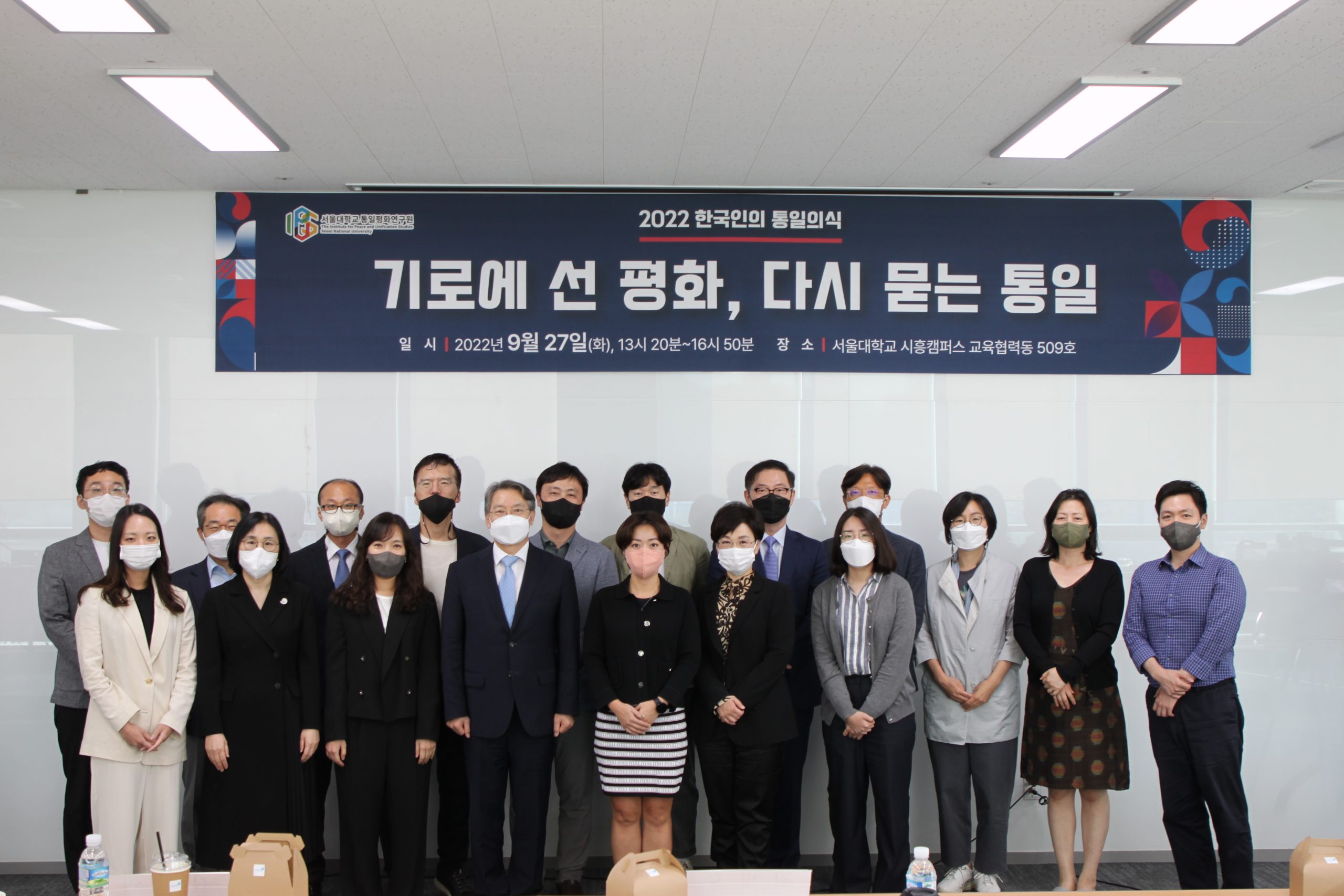
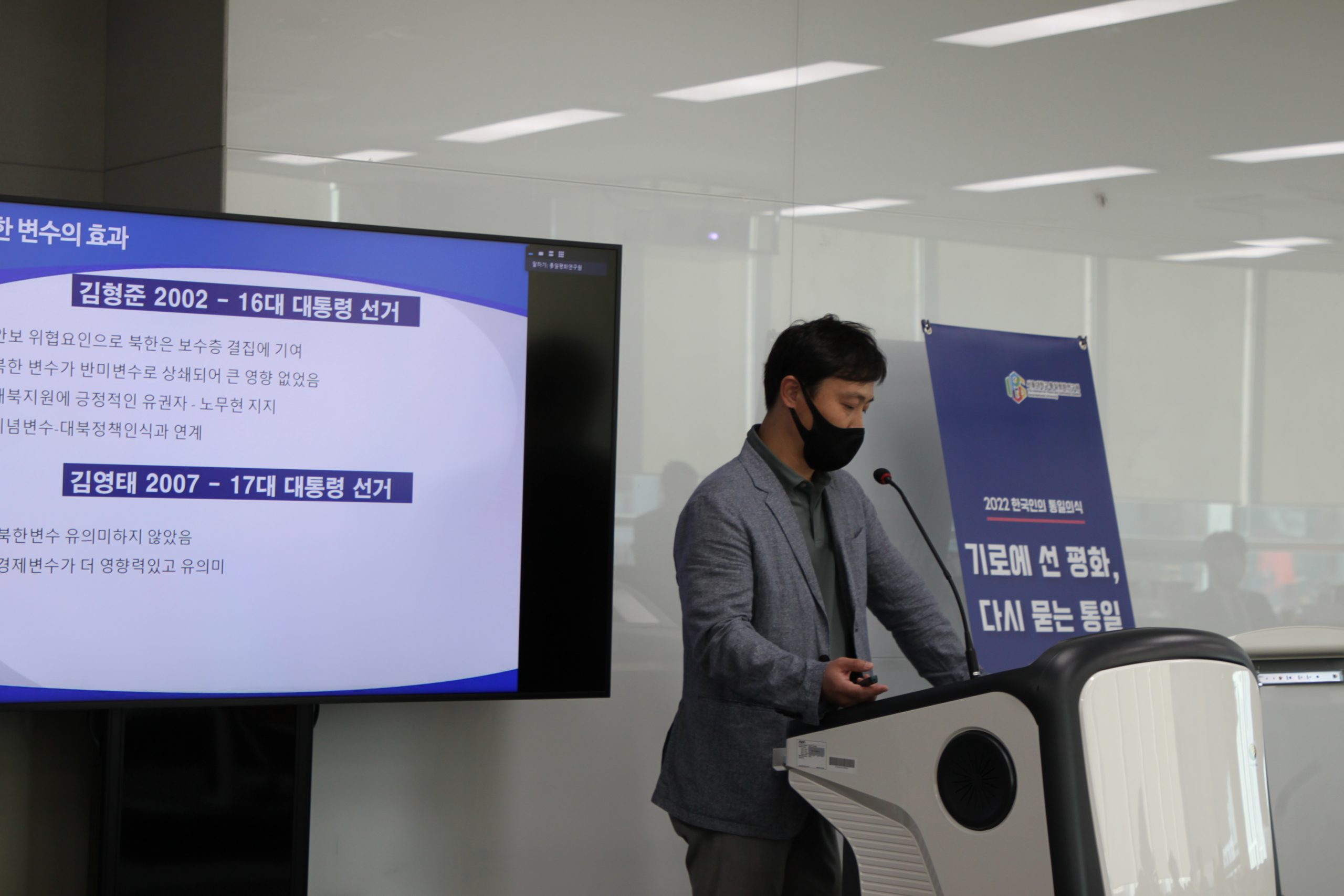
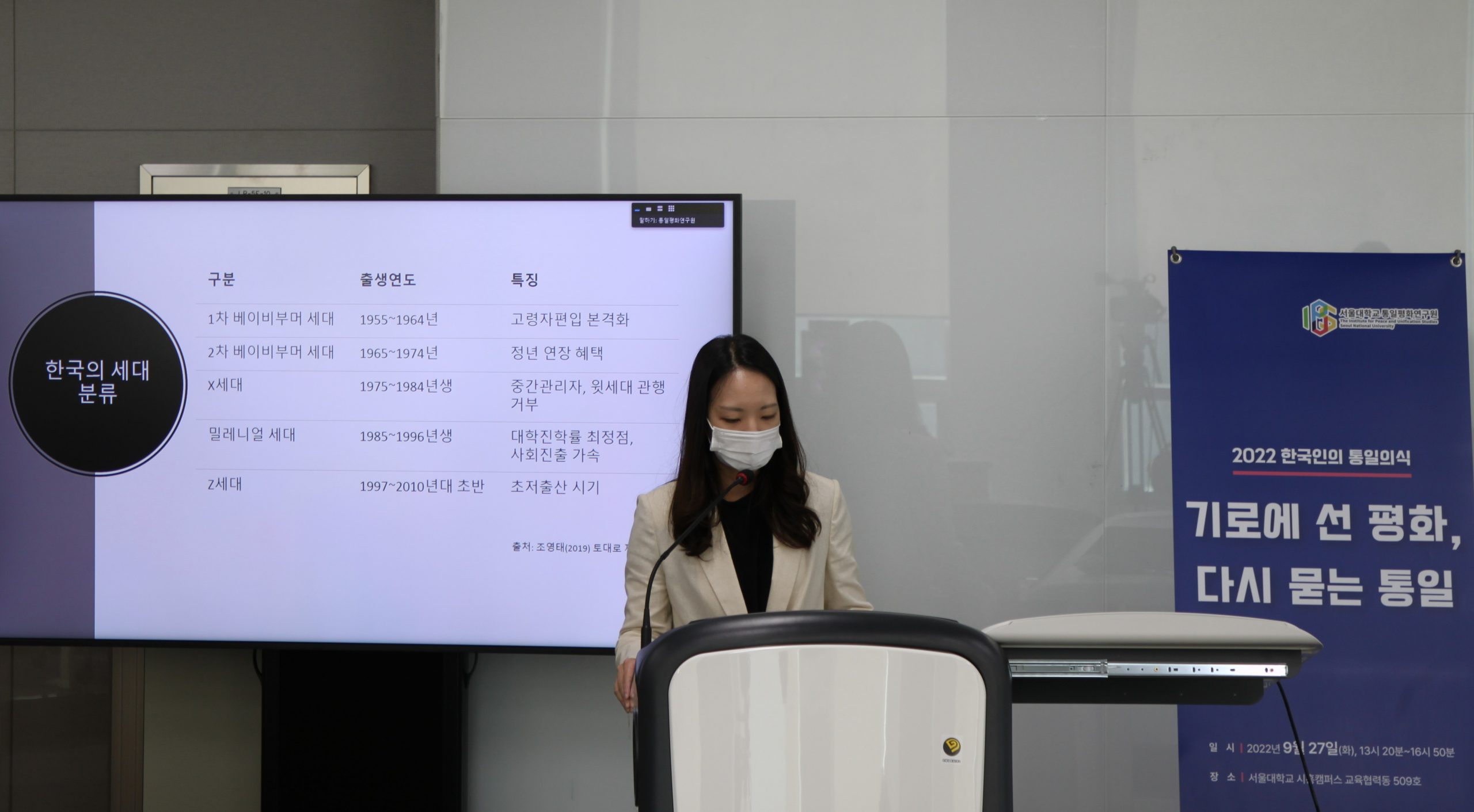
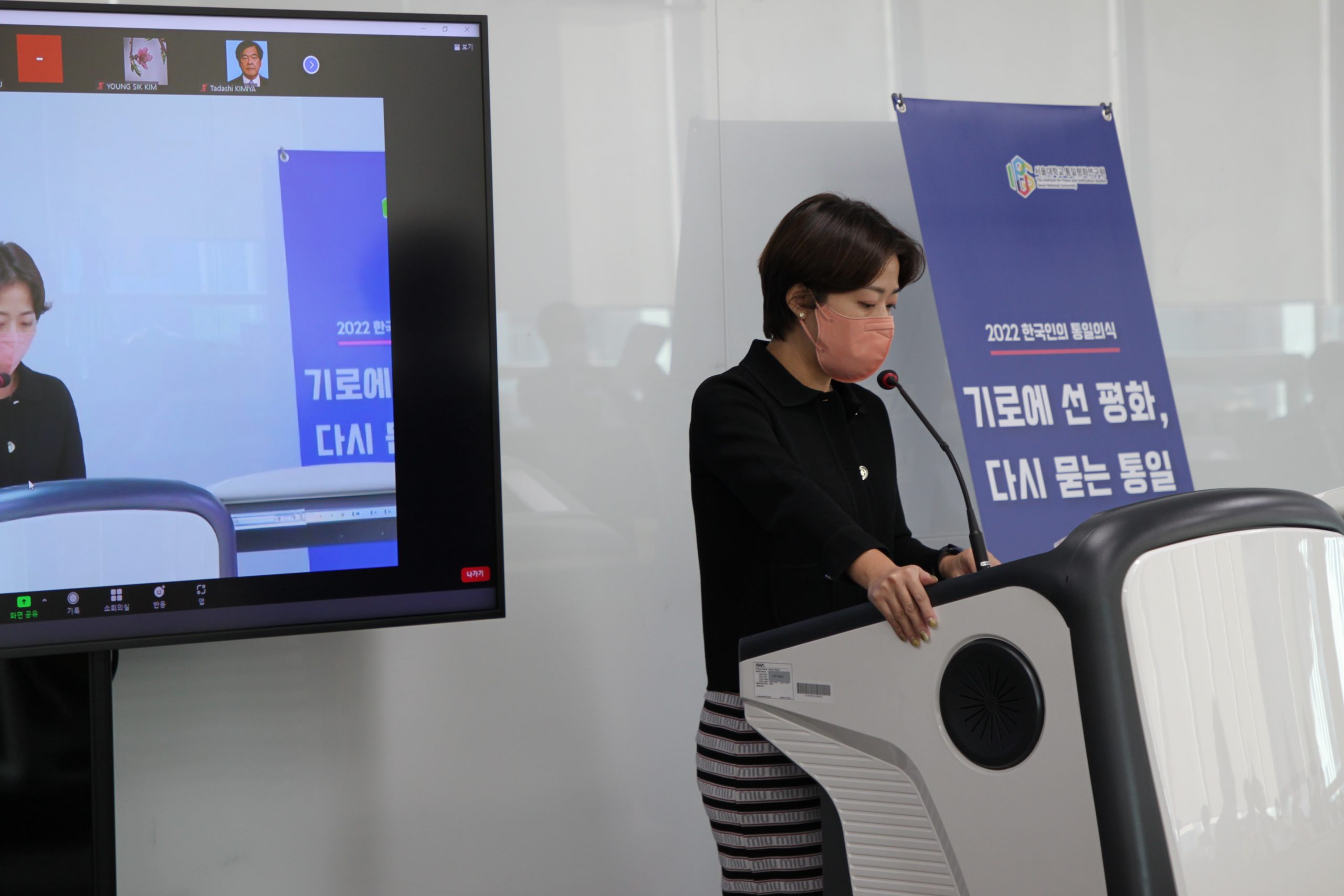
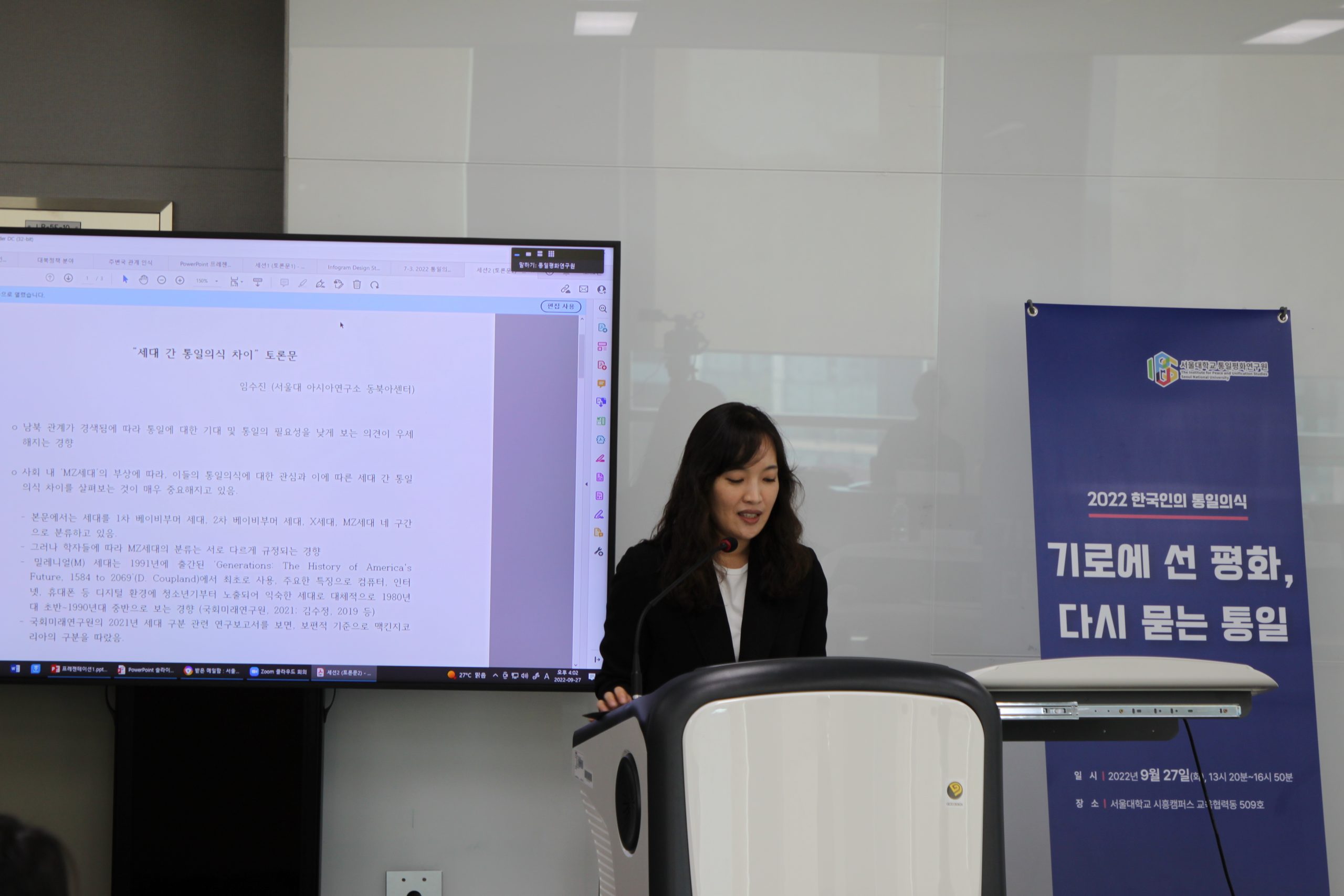
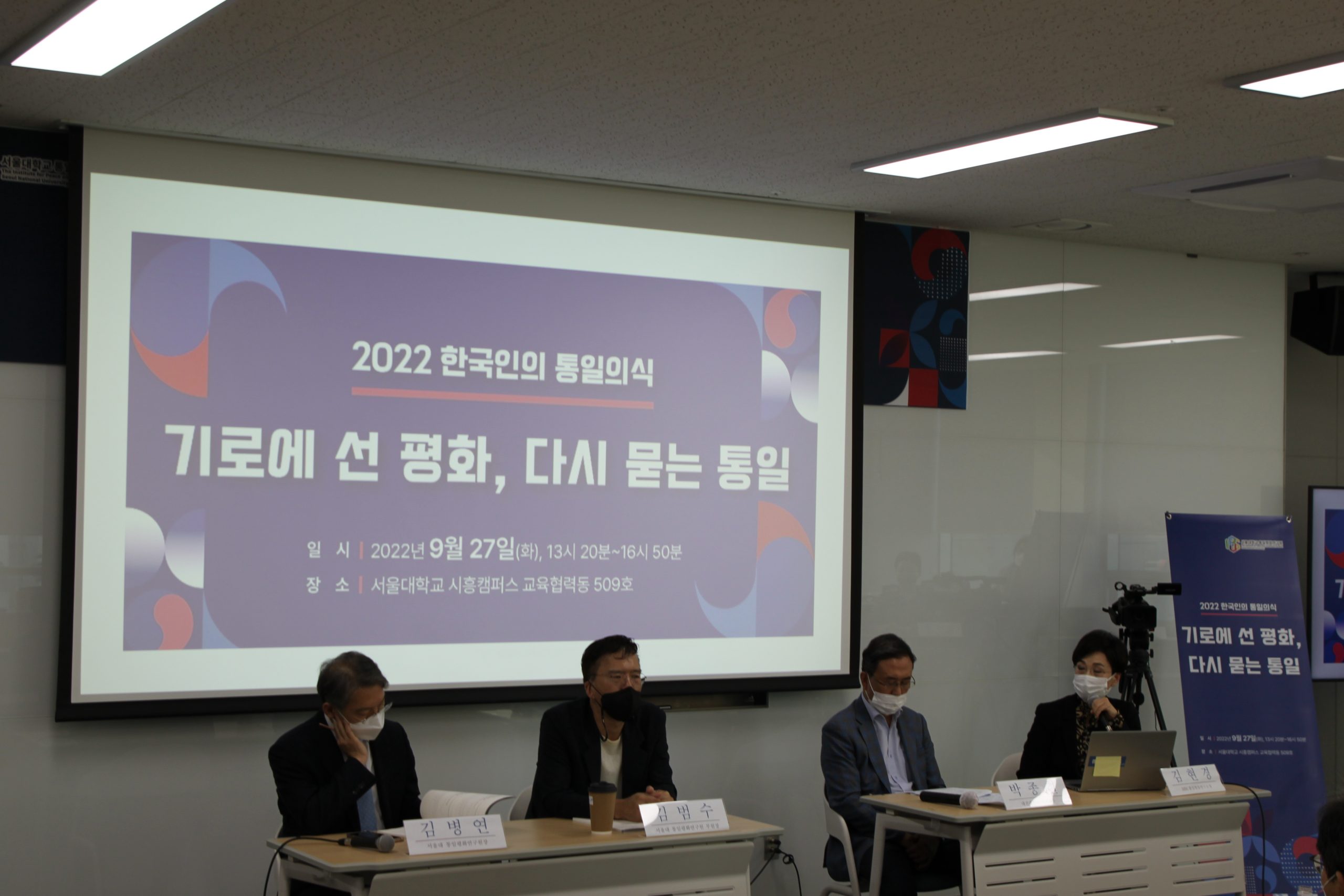
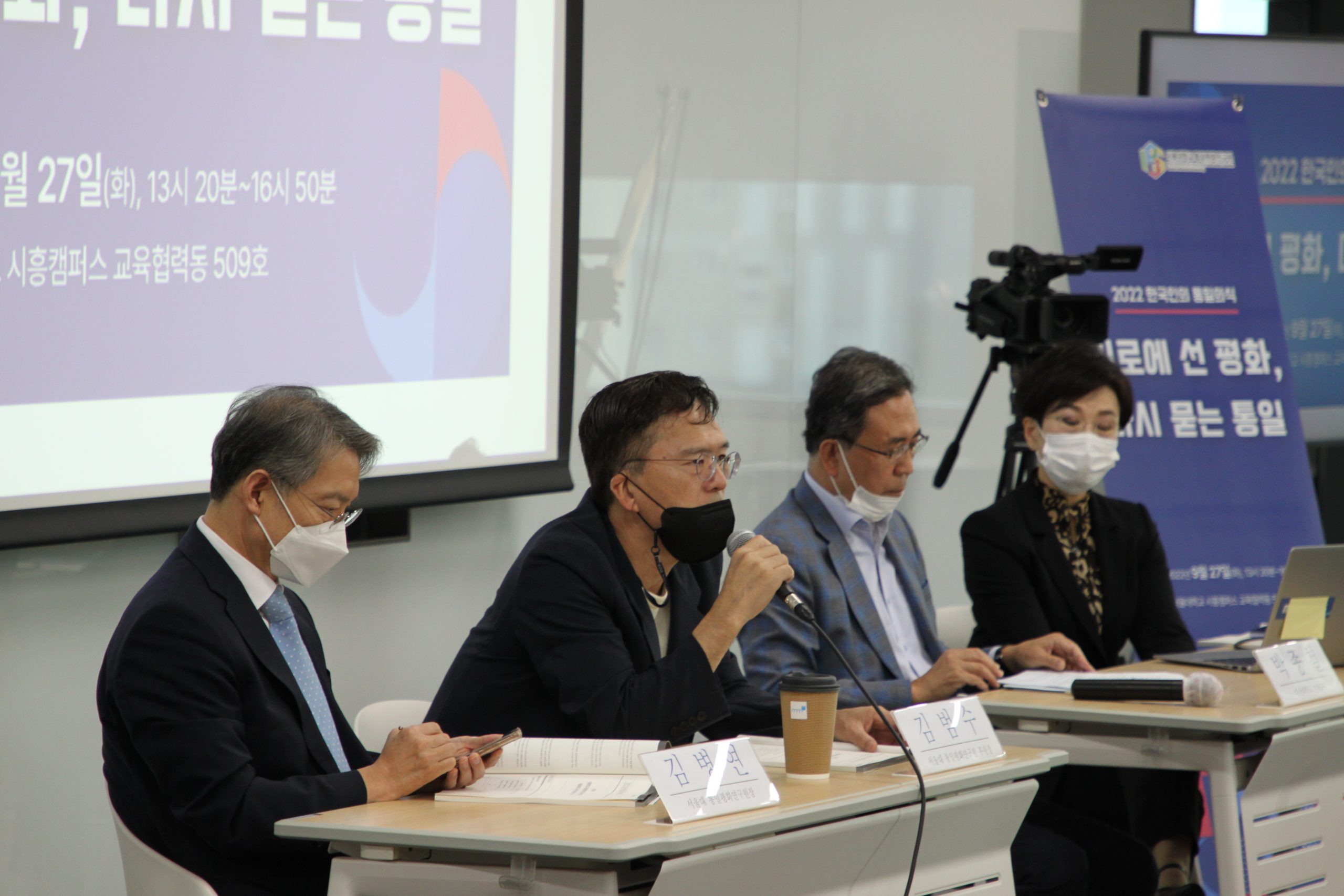
Translated by Lenox Huh
















